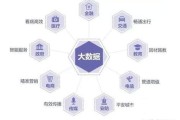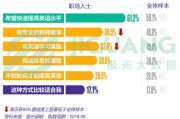大数据指的是规模庞大、类型繁多的数据集合,这些数据量大到传统数据处理工具难以管理和处理。研究大数据意义重大,不仅可以帮助企业解决业务问题,还能对社会、...
2024-05-13 347 什么是大数据 研究大数据的意义有哪些呢 大数据简单介绍
In today's rapidly evolving technological landscape, the relevance of big data remains a pivotal topic of discussion. The emergence of new technologies and methodologies has led some to question whether big data still holds the same level of importance as it once did. Let's delve into this inquiry to understand the current standing of big data in various industries and its potential future trajectory.
Big data, characterized by the vast volume, velocity, and variety of data generated, has been instrumental in driving insights and facilitating decisionmaking across diverse sectors. From finance to healthcare, retail to manufacturing, the utilization of big data has transformed operations, enhanced customer experiences, and fueled innovation.
However, with the advent of advanced analytics techniques such as machine learning and artificial intelligence (AI), some argue that the focus is shifting from merely accumulating vast amounts of data to deriving actionable insights from it. The emphasis is now on quality over quantity, with organizations seeking to extract meaningful information from structured and unstructured data sources efficiently.
The evolution of data analytics has paved the way for more nuanced approaches to extracting value from data. Traditional methods of data analysis are giving way to predictive and prescriptive analytics, where algorithms sift through data to forecast trends, identify patterns, and recommend courses of action.
Moreover, the democratization of data analytics tools has empowered users across organizations to leverage data for decisionmaking effectively. Selfservice analytics platforms enable users with varying levels of technical expertise to explore data, create visualizations, and derive insights independently, reducing reliance on dedicated data science teams.
In the financial sector, big data continues to play a vital role in risk management, fraud detection, and customer analytics. However, there is a growing emphasis on realtime analytics to respond swiftly to market changes and customer demands.
Big data analytics holds immense promise in healthcare for personalized medicine, disease prediction, and improving patient outcomes. Integrating disparate data sources, including electronic health records and genomic data, remains a challenge but offers significant opportunities for advancements in healthcare delivery.
Retailers leverage big data to understand consumer behavior, optimize pricing strategies, and personalize marketing efforts. With the rise of ecommerce and omnichannel retailing, harnessing data from online and offline interactions is critical for staying competitive in the market.
In manufacturing, the concept of Industry 4.0 relies heavily on big data analytics for predictive maintenance, supply chain optimization, and quality control. By implementing IoT sensors and advanced analytics, manufacturers can minimize downtime, reduce costs, and enhance productivity.
While big data continues to hold relevance across industries, its evolution demands a shift in focus towards agility, scalability, and interpretability of insights. Organizations should:
1.
2.
3.

4.
In conclusion, while the landscape of data analytics continues to evolve, big data remains a cornerstone of decisionmaking and innovation across industries. By embracing emerging technologies, fostering data literacy, and upholding ethical standards, organizations can harness the power of data to drive sustainable growth and competitive advantage in the digital era.
This response provides an overview of the current relevance of big data across industries, highlighting its evolution and future directions. It emphasizes the importance of quality data, advanced analytics, data literacy, and ethical practices in leveraging big data effectively.
标签: 大数据没有用 现在没有大数据了吗的英语怎么写 大数据还可以怎么说 什么是大数据
相关文章

大数据指的是规模庞大、类型繁多的数据集合,这些数据量大到传统数据处理工具难以管理和处理。研究大数据意义重大,不仅可以帮助企业解决业务问题,还能对社会、...
2024-05-13 347 什么是大数据 研究大数据的意义有哪些呢 大数据简单介绍

标题:IsBigDataOver?内容:BigDatahasbeenasignificanttrendinrecentyears,revolution...
2024-05-02 77 大数据没有用 没有大数据会怎样 现在大数据太吓人了 现在没有大数据了吗的英语翻译

大数据在疫情防控中的应用随着科技的不断发展,大数据在疫情防控中发挥着越来越重要的作用。下面我将从数据采集、分析应用和风险预警三个方面介绍大数据在疫情防...
2024-04-16 362 什么是大数据 大数据服务疫情防控 防疫 大数据 大数据监控疫情 大数据疫情防控神器有哪些